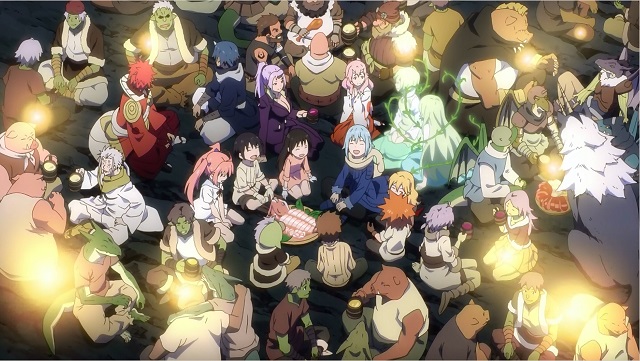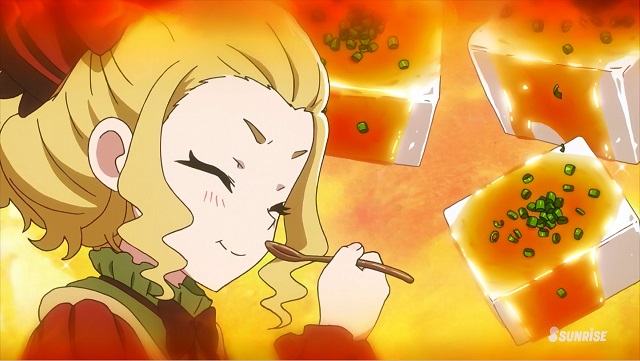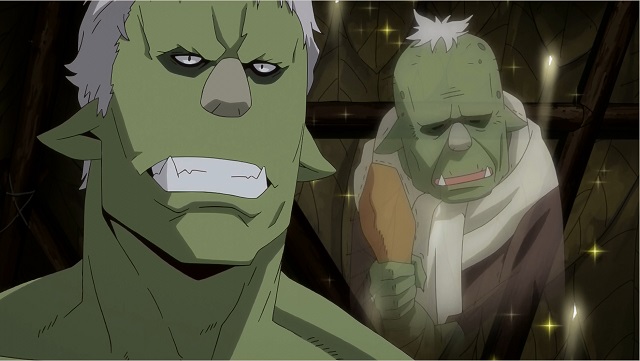The best recent isekai series is about an enlightened Japanese incel who gets reincarnated as a slime in a fantasy world and teaches all the grateful natives how to live in harmony with each other even though they’re different species.

Is this a fantasy of colonialism? Well, it’s not a million miles away from something like Tarzan. As you know Bob, isekai is a rather popular fantasy subgenre, where the protagonist either gets transported from modern day Japan to a fantasy world, or gets reincarnated into it after dying in an accident (usually courtesy of Truck-kun) or something similar. Sometimes they’re summoned, sometimes it’s an accident and if they’re reincarnated, it’s usually as a reward or apology for dying. Sometimes it’s a light hearted power fantasy, where protag-kun defeats all sorts of threats without breaking a sweat while collecting a harem of grateful fantasy girls, sometimes it’s a grim and gritty revenge fantasy where his seemingly thrash power is revealed to be game breaking because of how cleverly he applies it while seeking revenge on those that done him wrong and defeat the evil overlord menacing the world (the harem is still there of course). Sometimes it’s much more innocent; two recent examples where both of restaurants being transported to a fantasy world and teaching the natives about the wonders of Japanese food. But through all of it runs an imperialist, colonialist streak, as this Pause and Select video argues:
Sometimes this is very obvious, as in Gate, which starts with a dimensional, well, gate opening up in Tokyo through which a fantasy army emerges to attack the city. After initial panic the police and Japanese Self Defence Forces rally and defeat it, with an expeditionary force sent to the other side of the gate to prevent a second attack. A series of battles there results in the deaths of hundreds of thousands of imperial soldiers for little loss on the Japanese side. Once a base is established, the series follows the protagonist, who also helped foil the initial attack on a series of what are essentially hearts and minds missions. A comparison with the US War on Terror and its continuing occupation of Afghanistan and Iraq is obvious. Especially when it quickly becomes clear Japan would very much like to ‘develop’ the new ‘Special Region’.
But usually it’s a bit more subtle, just the idea of a random Japanese person being better at being a hero than the actual inhabitants of fantasyland. That’s colonialism in a nut shell, familiar from Tarzan and decades of American science fiction. The latter makes for a good comparison. The Campbellian/Heinlein science fiction of the socalled Golden Age was cheerfully imperialistic, manly men conquering the stars and engaging in the occasional bit of genocide to make the universe safe for Anglosaxons. Coming from a country still high on manifest destiny it was no surprise that alien races were there only to be conquered or pitied.

Modern Japanese isekai fantasy isn’t this aggressive in its colonial fantasies, as that Pause and Select video explores. It’s more about ‘soft power’, about Japanese culture being superior to the indigenous cultures of fantasyland, as seen in the two “restaurants trapped in fantasyland” series (Isekai Shokudou & Isekai Nobu) we’ve seen the past two years. In both the Japanese food is so obviously more tasty than the fare the fantasylanders are used to even though both are bog standard restaurants serving bog standard food. The latter series was actually commissioned to promote the 2020 Tokyo Olympic Games. Cool Japan in Another World. The most blatant example of this Cool Japan imperialism was 2013’s Outbreak Company, where a shut-in otaku is given the task of selling anime culture to a newly discovered secondary world in a government sponsored attempt to ‘conquer’ this world through culture.
Tensei Shitara Slime Datta Ken, which we started with, is less blatantly otaku pandering and therefore more interesting as an example of soft colonialism. Our protagonist Rimuru is a fairly average isekai protagonist, stabbed to death defending his friends/co-workers from an attack, reincarnated as a slime who has the power to swallow up bigger monsters and copy their power. It’s a classic power fantasy, the meek looking person (or slime) being much more powerful than they look. When he encounters a group of goblins driven from their home by dire wolves, he takes their side, takes out the leader of the wolves and becomes the ruler of both sets of monsters. From that humble beginning he builds up a country where all sorts of monsters can live together in peace under his benevolent dictatorship. It’s a very seductive sort of fantasy and I can’t say I don’t like it, certainly moreso than something like Goblin Slayer, but it remains a colonialist fantasy.

Nothing makes this as clear as the naming scenes. It’s a bit of a fantasy gaming cliche that ordinary monsters are nameless while named monsters are more powerful. And indeed, the low level monster tribes Rimuru encounters are almost entirely nameless, untill he sets out to name them, at a cost to his magic. The results are spectacular, with ordinary goblins becoming super powered and much more human looking. This repeats with every race Rimuru names: the men always become buff slabs of beef while the women gain bouncy bouncy chests, even when they’re lizard people. The unnamed people gain recognition and value only when named by the colonial authorities. Before that, they’re just a mess of small fry.
As an European, this sort of attitude is not new in the stories I’ve consumed, just the way in which this Japanese variant differs from what I’ve read in French comics or seen in American movies. A series like Tensei Shitara Slime Datta Ken is fairly innocuous in context, if patronising towards fictional species and with an attitude that can be traced back to Japan’s WWII era imperialism. Few of us do better here in the west. It’s not vile like Goblin Slayer or Shield Hero which wallow in resentment, but it does pay to keep the background of its particular narrative in mind. It’s not necessarily bad to watch this sort of series, as long as you acknowledge its less savoury aspects.
No Comments